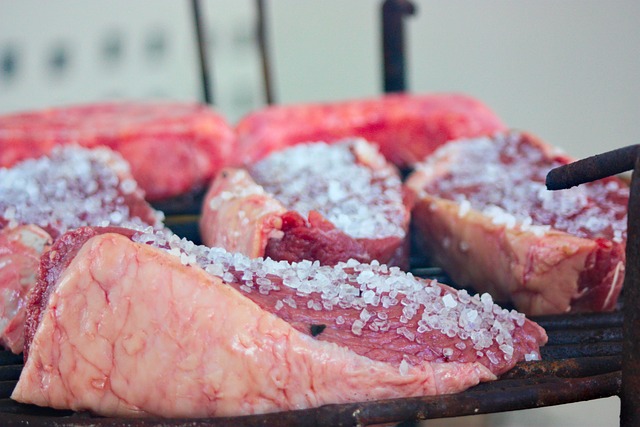Inflammation is a double-edged sword, beneficial for acute defenses but harmful as a chronic condition linked to heart disease, diabetes, and cognitive decline. In legal Louisiana, where kratom possession is regulated, interest grows in its potential anti-inflammatory benefits as a natural alternative to pharmaceuticals. Kratom's active compounds interact with opioid receptors, reducing pain and inflammation without sedation. Its accessibility, low cost, and natural properties make it an appealing option for managing chronic inflammation outside traditional medicine, but unlicensed possession carries severe legal penalties.
“Unraveling the power of nature for optimal health, this article delves into the potential of kratom supplements as a natural anti-inflammatory agent. While legal considerations, such as the possession of kratom in Louisiana, spark important discussions, understanding inflammation and its far-reaching impact on overall well-being is crucial. Discover how kratom, with its unique properties, offers hope for reducing inflammation naturally. Explore these topics to gain insights into a holistic approach to managing chronic inflammation.”
- Understanding Inflammation and Its Impact on Health
- Exploring Kratom as a Natural Anti-Inflammatory Agent
- Legal Considerations: Possession of Kratom in Louisiana
Understanding Inflammation and Its Impact on Health

Inflammation is a complex physiological response that plays a dual role in our bodies. On one hand, it’s an essential mechanism to protect us from infections and injuries, serving as a sign for the immune system to act. Chronic inflammation, however, can have detrimental effects on overall health. It’s linked to various conditions like heart disease, diabetes, and even cognitive decline. In Louisiana, where possession of kratom is legal for medicinal use, exploring natural remedies like kratom supplements has gained interest due to their potential anti-inflammatory properties.
Chronic inflammation often results from an overactive immune system, leading to prolonged activation of inflammatory markers. These markers can cause damage to healthy cells and tissues, contributing to a range of health issues. Understanding how inflammation works is crucial in managing these conditions effectively. By recognizing the body’s response and finding natural ways to regulate it, individuals like those in Louisiana with access to kratom supplements may find relief from the adverse effects of chronic inflammation.
Exploring Kratom as a Natural Anti-Inflammatory Agent

Kratom, a natural herb native to Southeast Asia, has long been recognized for its diverse medicinal properties. Among its many benefits, kratom is emerging as a promising anti-inflammatory agent, offering a potential alternative to conventional medications. The plant’s active compounds, including mitragynine and 7-hydroxymitragynine, have shown significant anti-inflammatory effects in various studies. These compounds interact with opioid receptors in the body, modulating pain perception and reducing inflammation without causing sedation or other side effects commonly associated with traditional painkillers.
In Louisiana, where possession of kratom is legal (with some restrictions), researchers are exploring its potential to treat chronic inflammatory conditions. The herb’s ability to target specific pathways involved in inflammation makes it a game-changer for individuals seeking natural remedies. Moreover, kratom’s accessibility and relatively low cost compared to prescription drugs make it an attractive option for those looking to manage inflammation without relying heavily on pharmaceutical interventions.
Legal Considerations: Possession of Kratom in Louisiana

In Louisiana, the possession and use of kratom are subject to specific legal considerations. While kratom has gained popularity as a natural supplement for pain relief and inflammation reduction, its legal status varies across states. In Louisiana, kratom is currently classified as a Schedule I controlled substance, meaning it is illegal to possess, use, or distribute without a valid prescription from a licensed healthcare provider. This classification places it in the same category as highly potent narcotics like heroin and morphine.
Despite the legal restrictions, some individuals advocate for the therapeutic potential of kratom. However, it’s crucial to understand the consequences of possessing this substance in Louisiana. Unlicensed possession can lead to severe penalties, including fines and imprisonment. As with any supplement, individuals considering kratom should stay informed about local laws and consult healthcare professionals before using it as a treatment for inflammation reduction or other medical conditions.
Kratom, with its natural anti-inflammatory properties, offers a promising alternative for those seeking relief from inflammation. However, it’s crucial to be aware of the legal status, especially regarding the possession of kratom in Louisiana. As research continues to uncover kratom’s potential benefits, navigating both health and legal aspects is essential for individuals considering this herbal supplement. Understanding inflammation and its impact on overall health, combined with informed decisions about kratom use, can lead to better wellness outcomes.














